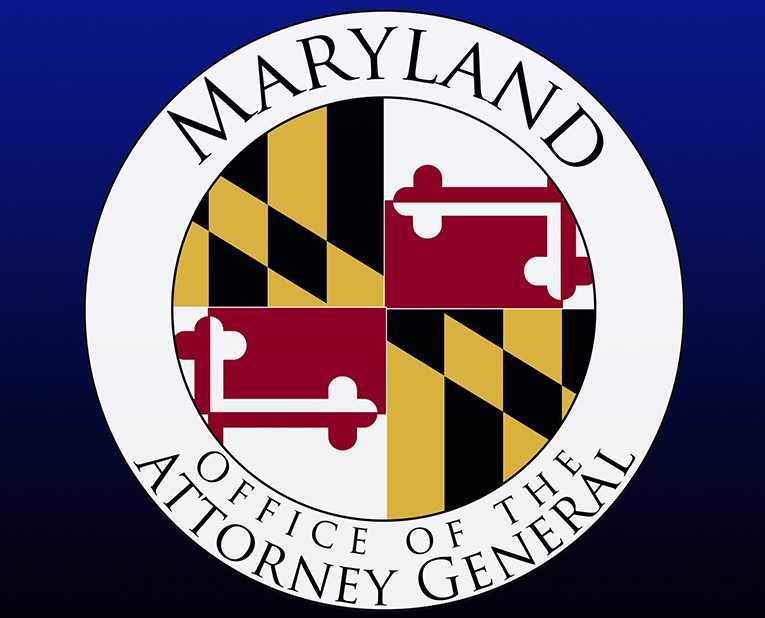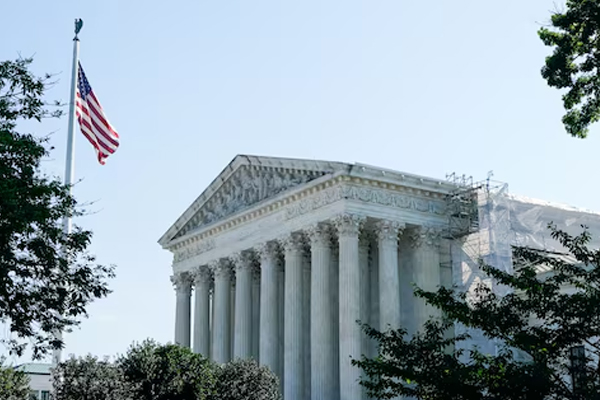
The Maryland Attorney General joined 21 other states in filing a legal brief supporting NPR and PBS lawsuits challenging a Trump-era executive order to eliminate federal funding, arguing the cuts would harm public safety, education, and access to critical information, particularly in underserved communities.
Per the news release distributed on Friday, June 20: “Attorney General Anthony G. Brown today filed an amicus brief in the U.S. District Court for the District of Columbia, along with 21 other attorneys general, in support of two lawsuits brought by National Public Radio (NPR) and the Public Broadcasting Service (PBS) that seek to block proposed funding cuts to their organizations and local affiliates.
“Maryland NPR and PBS stations broadcast critical updates during emergencies, keep Marylanders up to date on the latest actions taken by their state and local governments and elected officials, and provide free children’s educational programming, a lifeline for families who otherwise couldn’t afford educational resources outside the classroom,” said Attorney General Brown. “The Trump administration’s funding cuts would hurt all Marylanders, especially those from rural, immigrant, and low-income communities that depend on NPR and PBS’ vital reports to stay informed.”
At issue in the case is an executive order signed by President Trump on May 1 directing the board of the Corporation for Public Broadcasting and executive branch agencies to end federal funding for NPR and PBS. On May 27, NPR and three Colorado public radio stations—Colorado Public Radio, Aspen Public Radio, and tribal-serving KSUT in southwestern Colorado—sued to block the proposed cuts. PBS and a Minnesota-based affiliate filed a separate lawsuit on May 30.
The coalition of attorneys general argue that public broadcast stations serve a critical role in delivering information to the public and the proposed cuts would gravely harm Americans. The coalition says the funding cuts would create risks to public safety and erode trust by threatening coverage of local news, creating disruptions to the distribution of emergency notifications, reducing critical educational services, and limiting public media’s unique reach to rural and tribal audiences.
In the brief, filed concurrently today in both lawsuits, the coalition outlines some of the harms people in their states will face if the cuts move forward. These include threats to emergency notification systems like the Emergency Alert System, or EAS. Many states, including Maryland, rely on public broadcast stations to serve as primary or secondary stations to deliver EAS messages to the public during emergencies. Additionally, other infrastructure provided by NPR and PBS serve as important backups for emergency notifications in the event of electrical or internet outages.
Maryland’s public broadcasters cover more than 95% of the state and provide emergency alerts in multiple languages, reaching communities that might not get this vital information any other way. For example, Maryland Public Television operates six transmission towers and has a direct connection to the Maryland State House, allowing the Governor to broadcast statewide alerts quickly during emergencies. Other emergency notifications disseminated via public media include Amber Alerts for abducted children, Blue Alerts for notifying the public of suspects who have killed or seriously injured law enforcement officers, Silver Alerts used when older people or people with developmental disabilities go missing, and Missing Indigenous Person Alerts that are critical for tribal communities.
The brief also outlines how public broadcasters serve important educational roles, such as Maryland Public Television, which provides digital learning content through ThinkPort.org that thousands of people in Maryland’s educational communities use for student instruction, professional learning courses, and early childhood education.
In addition, the brief outlines how Maryland residents would lose access to important government information. Since 2020, Maryland Public Television has partnered with the state to livestream House floor sessions, and since 2022 they’ve streamed both House and Senate sessions. They also broadcast important political events like mayoral debates and the State of the State address, helping voters stay informed about their elected officials and key issues.
Finally, the brief highlights the disproportionate threats to rural and tribal areas posed by the cuts. Delmarva Public Media—operated by Salisbury University and the University of Maryland Eastern Shore—covers local news and weather for more than 40,000 weekly listeners in the rural Delmarva region, while Frostburg State University’s WFWM provides coverage in isolated parts of Appalachia. Stations such as these are often the only local news sources in what would otherwise be news deserts.
Joining Attorney General Brown in filing the brief are the attorneys general of Arizona, California, Colorado, Connecticut, Delaware, District of Columbia, Hawaii, Illinois, Maine, Michigan, Minnesota, Nevada, New Jersey, New Mexico, New York, North Carolina, Oregon, Rhode Island, Vermont, Washington, and Wisconsin.”



